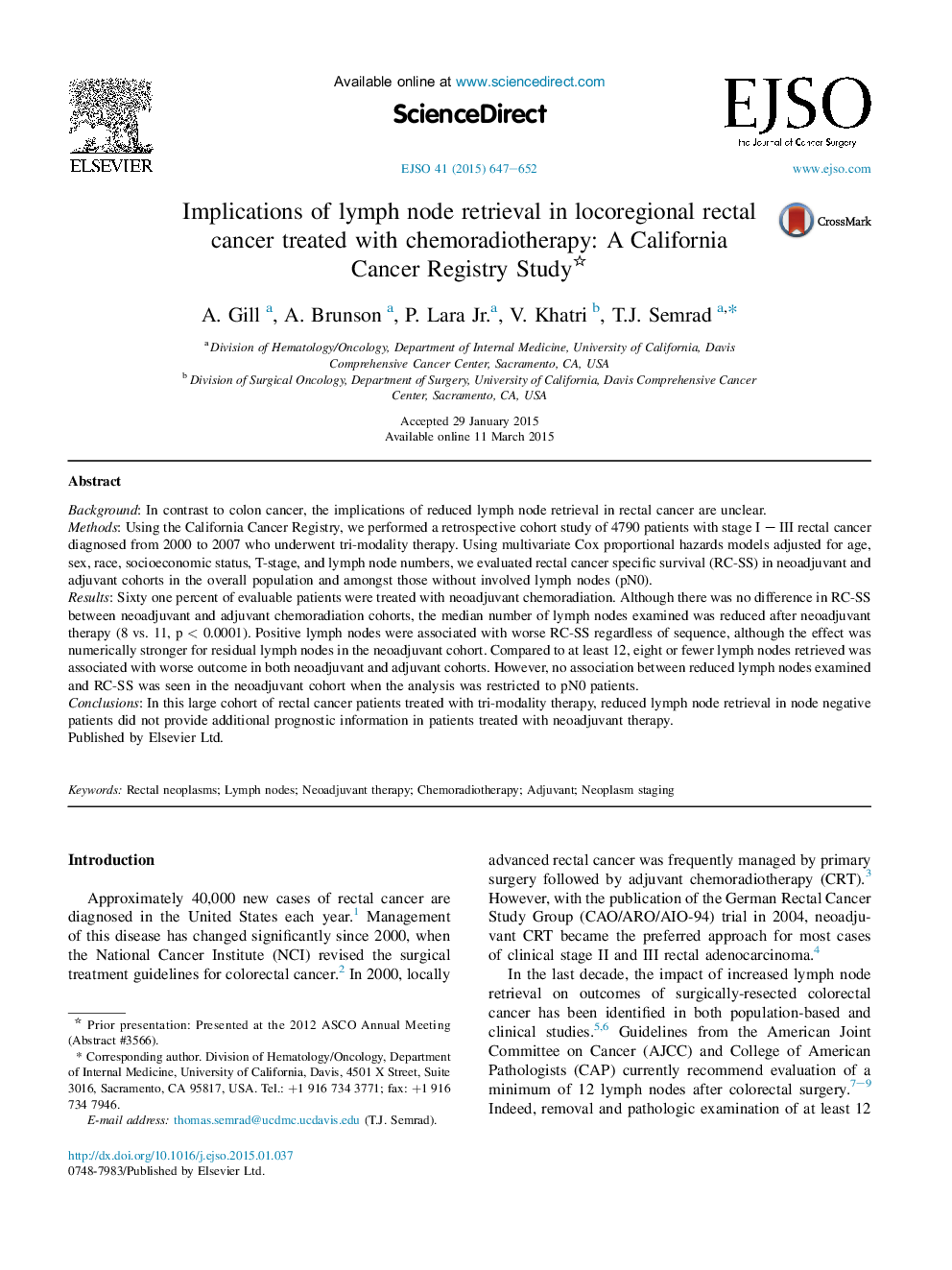| Article ID | Journal | Published Year | Pages | File Type |
|---|---|---|---|---|
| 3984751 | European Journal of Surgical Oncology (EJSO) | 2015 | 6 Pages |
BackgroundIn contrast to colon cancer, the implications of reduced lymph node retrieval in rectal cancer are unclear.MethodsUsing the California Cancer Registry, we performed a retrospective cohort study of 4790 patients with stage I – III rectal cancer diagnosed from 2000 to 2007 who underwent tri-modality therapy. Using multivariate Cox proportional hazards models adjusted for age, sex, race, socioeconomic status, T-stage, and lymph node numbers, we evaluated rectal cancer specific survival (RC-SS) in neoadjuvant and adjuvant cohorts in the overall population and amongst those without involved lymph nodes (pN0).ResultsSixty one percent of evaluable patients were treated with neoadjuvant chemoradiation. Although there was no difference in RC-SS between neoadjuvant and adjuvant chemoradiation cohorts, the median number of lymph nodes examined was reduced after neoadjuvant therapy (8 vs. 11, p < 0.0001). Positive lymph nodes were associated with worse RC-SS regardless of sequence, although the effect was numerically stronger for residual lymph nodes in the neoadjuvant cohort. Compared to at least 12, eight or fewer lymph nodes retrieved was associated with worse outcome in both neoadjuvant and adjuvant cohorts. However, no association between reduced lymph nodes examined and RC-SS was seen in the neoadjuvant cohort when the analysis was restricted to pN0 patients.ConclusionsIn this large cohort of rectal cancer patients treated with tri-modality therapy, reduced lymph node retrieval in node negative patients did not provide additional prognostic information in patients treated with neoadjuvant therapy.
